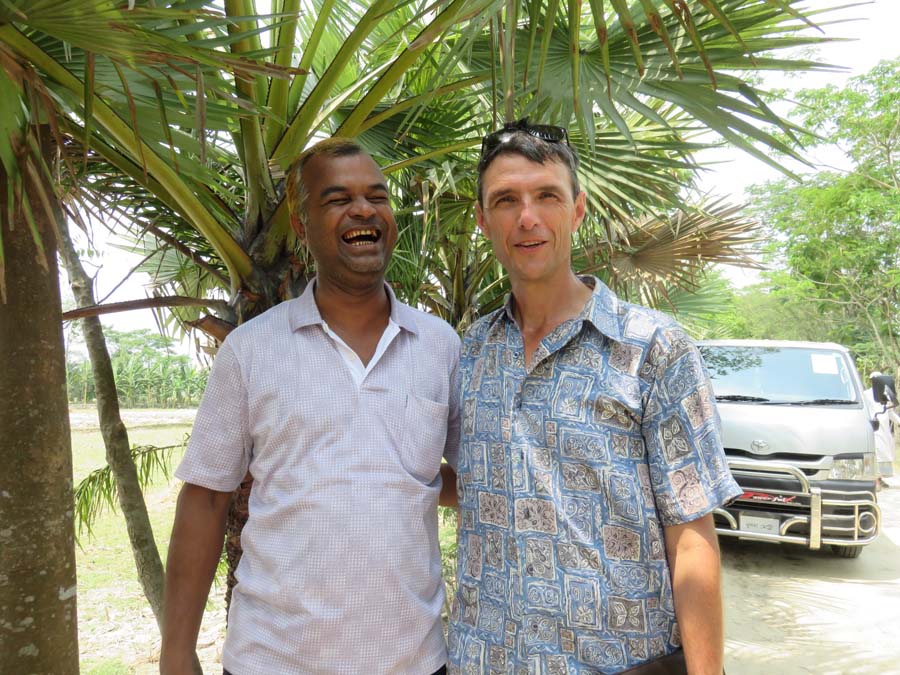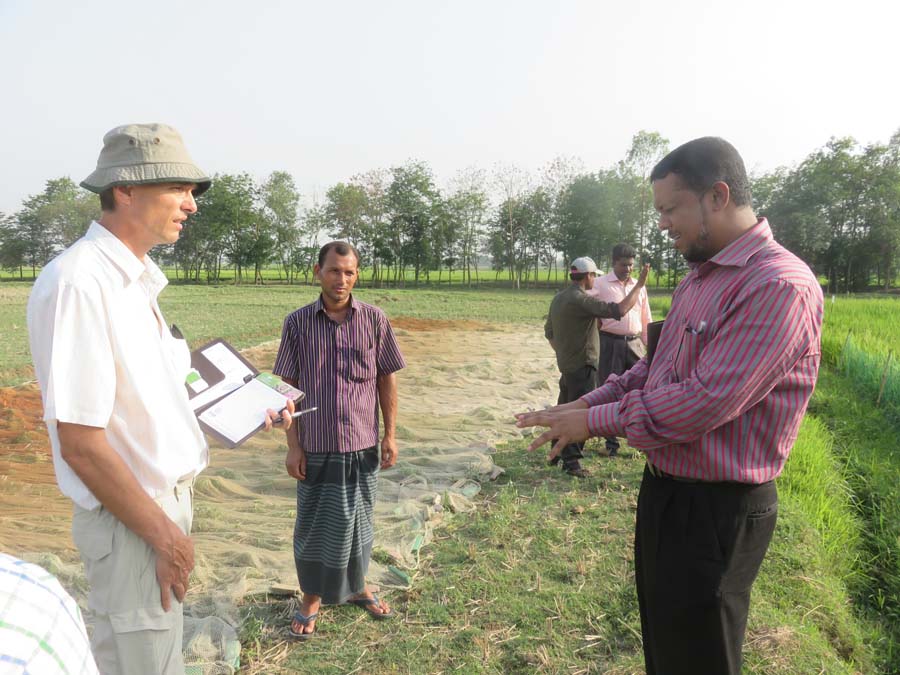10 minutes with Evan Christen
By Evan Christen, Research Program Manager, Land and Water Resources, ACIAR
HOW DID YOU GET INVOLVED IN AGRICULTURAL RESEARCH FOR INTERNATIONAL DEVELOPMENT?
I was born and grew up on a tea estate in Kenya, which gave me an early insight into some of the challenges facing farming communities in developing countries. When I was 7 years old, my family moved to Zambia, and shortly after, I went off to the UK to complete my secondary education. I then went on to study a diploma in agricultural engineering at agricultural college. While completing my Masters in soil and water engineering at Cranfield University, I was lucky to be part of a team that was collaborating with CSIRO in Australia. This led to an opportunity to complete my PhD in Australia, where I studied mole drainage for the control of waterlogging and salinity in irrigated agriculture. Following my PhD, I worked as a research scientist on a couple of ACIAR projects in Pakistan and China, before getting an opportunity to lead an ACIAR project in Cambodia on irrigation water management. I must note though, during this time, international research projects probably only took up 20% of my time. Most of my time was spent working on projects in Australia, where I was able to really hone my technical understanding and skills (and importantly publish), and then apply them in a developing country context. After 18 years of working as a research scientist, I decided to take my career in a different direction, taking a Research Program Manager position at ACIAR. At ACIAR I manage the Land and Water Resources Program, where the focus is on increasing water productivity through innovative technical interventions, applied at scales ranging from farm to irrigation scheme or catchment level, as well as through water policy interventions. It’s quite funny how things work out. I always thought I would return to Africa to live and work. Apart from watching the odd Neighbours episode, Australia was never really on my radar. Now some 25 years later, I call Australia home. I guess the point here is to grab any opportunity your given with both hands, as you’ll never know where it can lead.
WHAT IS YOUR FAVOURITE ASPECT OF THIS WORK?
Definitely the interaction with people in our partner countries. It’s an amazing privilege to be readily welcomed into a community by local people who truly allow you to experience their culture, language, food, energy and enthusiasm. Plus, people in agriculture are generally in it for the right reason, to make a difference.

BIGGEST ACHIEVEMENT?
I take great pride in having supervised several PhD students and seeing them go on to do things that I couldn’t have done.
More recently, I have had the opportunity to promote an ACIAR project that looks to improve our understanding of how to undertake agricultural development in a socially inclusive way. We as a research community need to look at new ways of facilitating agricultural development that doesn’t disadvantage those who can easily get left behind in progress.
CHALLENGES?
A challenge is always an opportunity…
In agricultural research, we are often faced with two challenges of (1) getting funding; and (2) publishing. Both are key to a successful career. The bigger challenge though, and one that is often forgotten, is how to ensure your research has an impact. We are here for more than just securing the next round of funding or writing the next a paper. It’s difficult, because that is the research environment we find ourselves in, but I think it’s important to try and keep the bigger picture in mind. This requires a longer-term view and a more sharing type of attitude.
In international research, I think it’s is important to allow in-country partners the space to grow and take ownership of the work. You cannot come in thinking you have all the ideas and know-how. The chances are, the in-country partners have a much better idea of the problems to be addressed and how to go about it. Give them the responsibility.
Finally, you have to be realistic and hard-nosed about what will have impact. Often what will have impact is not as exciting or scientifically sexy, but sometime you just have to put your ego down and get the simple stuff right.
ADVICE FOR YOUNGER RESEARCHERS?
I’d suggest to try and get some level of understanding across the biophysical, social and economic disciplines as early on in your career as possible. We often focus in on our own discipline and neglect the other two. If your more of a biophysical scientist for example, it is really important to understand the social and economic environment in which your problem sits, and vice versa. Having a broader view of the world helps to make your research more relevant. It also allows you to collaborate across disciplines which can be extremely exciting and interesting.
I’d also suggest being very generous with your ideas and data. The benefits will always flow back to you. I have many experiences of where I have shared ideas and data and then have later been invited to join in a new project or co-author a paper.
Finally, don’t worry about making mistakes, we all do it. The important thing is to learn from your mistakes and to share your learnings with your peers.



